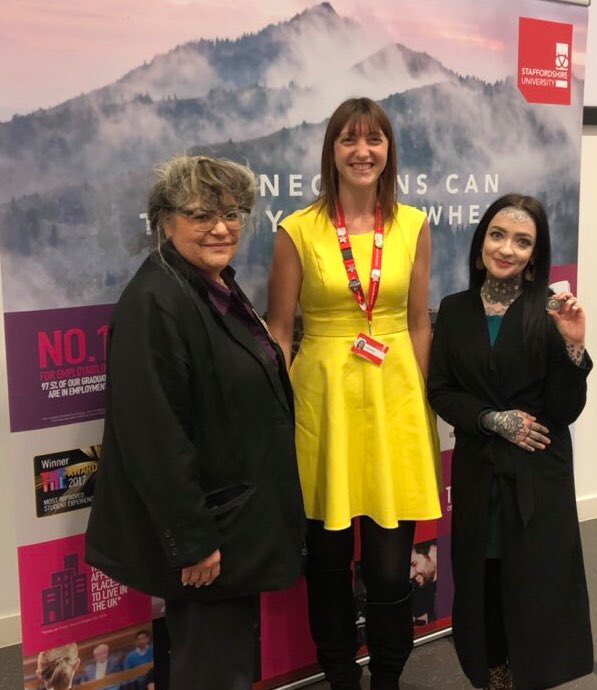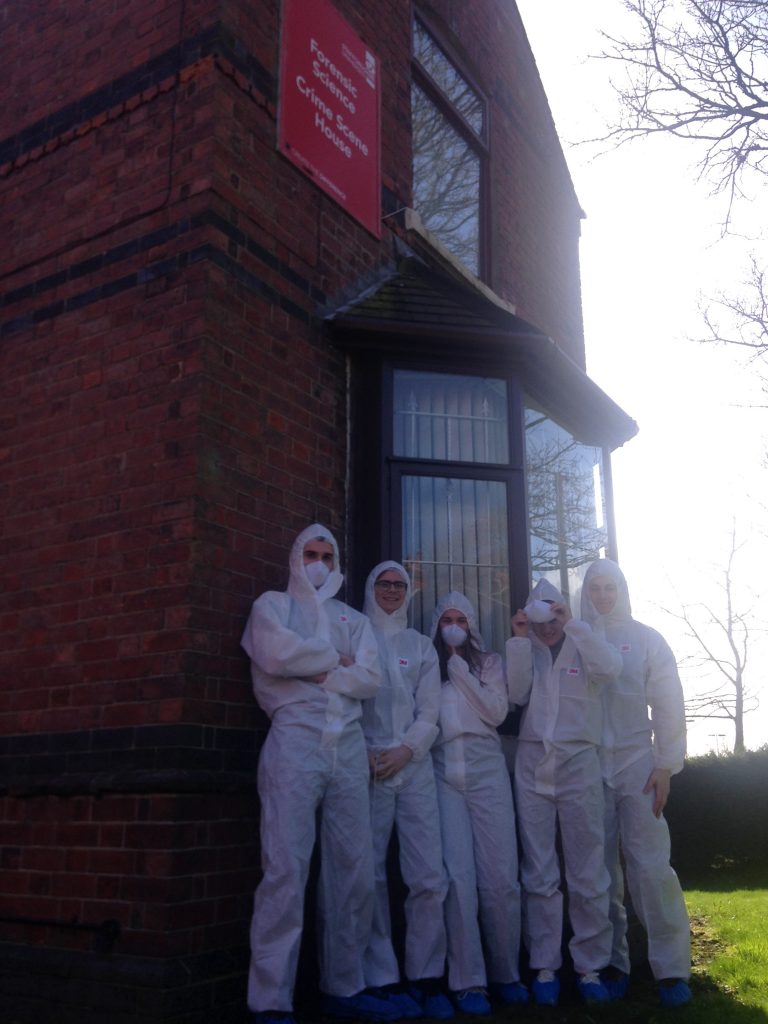Last week, fourteen of our undergraduate Forensic Science and Forensic Investigation students presented their research at the British Conference of Undergraduate Research at the University of South Wales.

The annual conference, which took place on the 15th-16th April, is held at different universities each year and allows undergraduate students to present their research in a variety of disciplines (read about last year’s here).

The students present their final-year project research in a digital or poster format.

Kirsty Chevannes presenting her research on the Evaluation of Methods Used Within Forensic Anthropology in Comparison to Digital Methods

Mauricio Chase discussing his research into The Development and Evaluation of Fingermarks on Firearms from Areas Frequently Handled

Symon Dowell investigated Whether Cutting Agents within Seized Cocaine Affects Quantifiation by HPLC.

Stacey White presented on The Tertiary Transfer and Persistence of Biological Evidence in Child Sexual Offence Cases.

Jessica Woodman – An Investigation into Whether the Partial Drying of Blood Drops Can Aid in the Determination of Sequence of Events of a Crime

Gareth Griffiths – A Validation Study of Faro Zone 3D for Blood Pattern Analysis

Rodgers Nyika – A Verification into the Effects that Different Temperatures and Substrate Types have on the Effectiveness of Fingermark Development

Rebecca Johnston carried out her research on The Migration of Volatile Organic Compounds through Various Polymer Membranes in Relation to Analysis of Arson Related Materials.

Mollie Barker presented her poster showing her work on The Creation of an Assessment Tool for Heat Damage to Textiles

Matthew Ballam-Davies presented his research about The Determination of Pedestrian Throw Types using Small-Scale Reconstruction

Lucy Colley – The Use of Non-Destructive Methods to Detect and Measure GSR Spread for the Estimation of Firing Distance at Close Range

Leah Ashton conducted her research project on the Chemical Interpretation of Post Mortem Submersion Interval Changes in Murine Models

Katie Evers – A Prediction of Textile Damage from Acid Attacks to Aid the Reconstruction of Events

Danielle Smith – Determining if Common Child Abuse Injuries are Still Visible on hard and Soft Tissues after Burial
Well done to everyone who attended and presented their research; what a valuable experience!

Dean Northfield (Forensic Investigation Course Leader, 6th from left) at the conference with our students

































